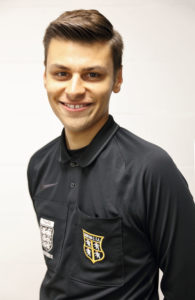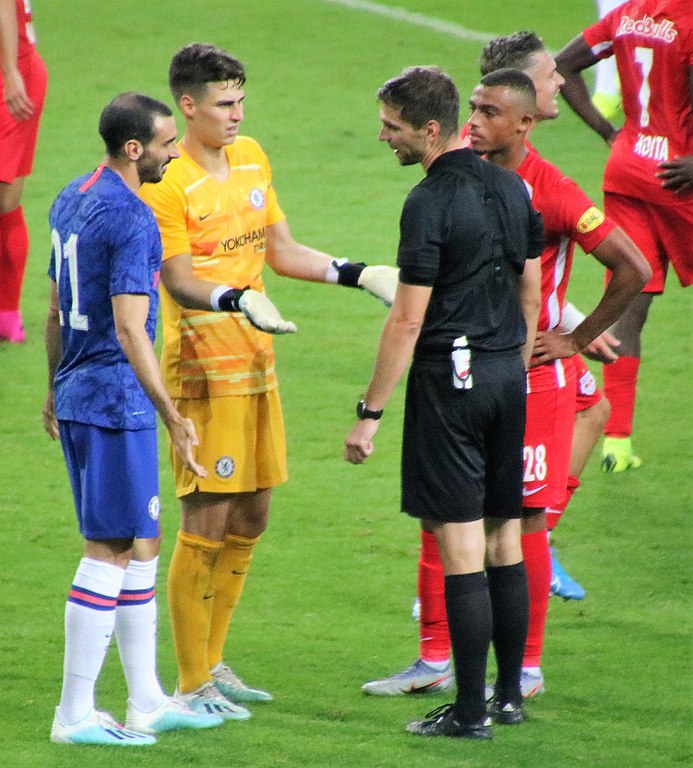It is true that most successes are preceded by large amounts of failure. Therefore, in order to succeed, you must be prepared to put up with a large number of failed attempts. A great example of this is possibly achieving a promotion after you failed in a bid in the previous season.
The reason for that is simple; most worthwhile goals, such as promotions, are difficult assignments. Since nobody is born with innate refereeing ability so, in order to succeed, you must first learn the lessons from your earlier mistakes.
When you began refereeing, you couldn’t perfectly identify fouls and misconduct, you had to learn. Identifying fouls and misconduct are very difficult assignments initially, yet, by the time most trainee referees have completed their six games and earned their badge, almost all referees are competent decision makers. Most referees go from level-zero to higher-competence-level in a relatively short space of time. But they make many, many failed attempts along the way. They make errors, many times before they are able to achieve a greater level of consistency.
When learning to referee, officials make what they would class as silly errors. I remember, in my first season I awarded a goal from a front-on position where the ball had bounced down from under the crossbar. The reaction to the decision told me immediately that I’d made an error and I learned that the hard way.
Referees learn rapidly by attempting, failing, modifying their refereeing style, and trying again. Over and over. Learning by incremental steps, continually improving and re-testing their skills, failing, learning the lesson, changing their approach, trying again, failing again, learning a bit more, trying again, failing, trying again, failing, trying again, finding success!
Those that make it to the top of the refereeing ladder are relentless learners. And they learn from their failed attempts.
Then something strange happens…..
When referees reach a certain level or level of experience, they begin to dread failing.
They become more concerned with making the “safest” decisions. Then, being seen to fail in front of players, spectators and club officials becomes something to be avoided. This is not helped by the fact that the abuse from players, spectators and club officials can be incredibly difficult for a referee to deal with. From a semi-professional level upwards the errors of officials could be highlighted on social media to a global audience.
In addition, failure can be very mentally painful and can hurt you deeply.
So, step by step referees retreat away from the concept of failure. They figure that the best way to avoid looking inept is to not follow their instinct on a decision. Or to keep repeating the safe decisions they’ve made.
Avoiding failure by not following your instinct, is a common means of committing ultimate failure for a referee. And avoiding failure by not adapting to changes in the game, and refusing to adapt to new ideas to referee more efficiently, is also a common means of committing ultimate failure.
Win by Losing
Referees should adopt the attitude that you can only be successful, by facing disappointment enough times, to learn the lessons that can only be learnt by tasting failure.
Train to Fail
Training to fail means; as an assistant referee keep watching the line in a turnover of possession which is going faster and faster until you can’t correctly identify offside any longer. This is comparable to weight lifters and body builders building strength by a process known as “training to failure”.
Sports individuals reach the top of their professions by continually training to the point of failure. It is training to the point of failure that stimulates an adaptive-response, i.e. an increase in size, strength, endurance and ability.
What would happen if the weight lifter only ever attempted weights that he knew he could already easily lift? Would he make make progress if he only lifted easy reps? Absolutely not.
In Order to Win You Must Accept The Challenge of Training to Failure
Learn as you did when you were a child again and be prepared to learn super-fast.
Failure is an integral prerequisite to success.
Accept that progress is sometimes preceded by pain.
Failure. Embrace it.
At The Third Team I work individually and in collaboration with different professionals where I have developed workshops associated with Resilience and Mental Toughness Development to help referees. The workshops are interactive, where referees are encouraged to open up and share their experiences to help each other.
Feel free to contact me if you’d like to know more about my workshops and how I could help you or your officials.
Best Wishes,

Nathan Sherratt
Referee Educator & Managing Director of The Third Team

Nathan Sherratt
Nathan Sherratt, Referee Educator, Resilience Trainer and Managing Director of The Third Team. A Mental Toughness Practitioner based near Durham, North East England.

